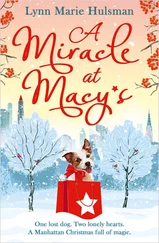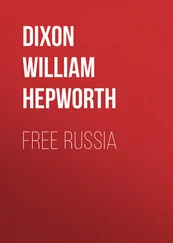Nikolai Nekrasov - Who Can Be Happy and Free in Russia?
Здесь есть возможность читать онлайн «Nikolai Nekrasov - Who Can Be Happy and Free in Russia?» весь текст электронной книги совершенно бесплатно (целиком полную версию без сокращений). В некоторых случаях можно слушать аудио, скачать через торрент в формате fb2 и присутствует краткое содержание. Год выпуска: 2005, Жанр: Поэзия, на английском языке. Описание произведения, (предисловие) а так же отзывы посетителей доступны на портале библиотеки ЛибКат.
- Название:Who Can Be Happy and Free in Russia?
- Автор:
- Жанр:
- Год:2005
- ISBN:нет данных
- Рейтинг книги:3 / 5. Голосов: 1
-
Избранное:Добавить в избранное
- Отзывы:
-
Ваша оценка:
- 60
- 1
- 2
- 3
- 4
- 5
Who Can Be Happy and Free in Russia?: краткое содержание, описание и аннотация
Предлагаем к чтению аннотацию, описание, краткое содержание или предисловие (зависит от того, что написал сам автор книги «Who Can Be Happy and Free in Russia?»). Если вы не нашли необходимую информацию о книге — напишите в комментариях, мы постараемся отыскать её.
Who Can Be Happy and Free in Russia? — читать онлайн бесплатно полную книгу (весь текст) целиком
Ниже представлен текст книги, разбитый по страницам. Система сохранения места последней прочитанной страницы, позволяет с удобством читать онлайн бесплатно книгу «Who Can Be Happy and Free in Russia?», без необходимости каждый раз заново искать на чём Вы остановились. Поставьте закладку, и сможете в любой момент перейти на страницу, на которой закончили чтение.
Интервал:
Закладка:
"You think you are clever,"
The grey-headed servant
Retorts with resentment,
"Yet books which are learned
Are wasted upon you.
You read but the labels
On public-house windows,
And that which is written 260
On every odd corner:
'Most strictly forbidden.'"
The pathways are filthy,
The graceful stone ladies
Bereft of their noses.
"The fruit and the berries,
The geese and the swans
Which were once on the water,
The thieving old rascals
Have stuffed in their maws. 270
Like church without pastor,
Like fields without peasants,
Are all these fine gardens
Without a Pomyéshchick,"
The peasants remark.
For long the Pomyéshchick
Has gathered his treasures,
When all of a sudden….
(The six peasants laugh,
But the seventh is silent, 280
He hangs down his head.)
A song bursts upon them!
A voice is resounding
Like blasts of a trumpet.
The heads of the peasants
Are eagerly lifted,
They gaze at the tower.
On the balcony round it
A man is now standing;
He wears a pope's cassock; 290
He sings … on the balmy
Soft air of the evening,
The bass, like a huge
Silver bell, is vibrating,
And throbbing it enters
The hearts of the peasants.
The words are not Russian,
But some foreign language,
But, like Russian songs,
It is full of great sorrow, 300
Of passionate grief,
Unending, unfathomed;
It wails and laments,
It is bitterly sobbing….
"Pray tell us, good woman,
What man is that singing?"
Román asks the woman
Now feeding her baby
With steaming ukhá. [43] Ukhá—fish soup.
"A singer, my brothers, 310
A born Little Russian,
The Barin once brought him
Away from his home,
With a promise to send him
To Italy later.
But long the Pomyéshchick
Has been in strange parts
And forgotten his promise;
And now the poor fellow
Would be but too glad 320
To get back to his village.
There's nothing to do here,
He hasn't a farthing,
There's nothing before him
And nothing behind him
Excepting his voice.
You have not really heard it;
You will if you stay here
Till sunrise to-morrow:
Some three versts away 330
There is living a deacon,
And he has a voice too.
They greet one another:
Each morning at sunrise
Will our little singer
Climb up to the watch-tower,
And call to the other,
'Good-morrow to Father
Ipát, and how fares he?'
(The windows all shake 340
At the sound.)
From the distance
The deacon will answer,
'Good-morrow, good-morrow,
To our little sweet-throat!
I go to drink vodka,
I'm going … I'm going….'
The voice on the air
Will hang quivering around us
For more than an hour, 350
Like the neigh of a stallion."
The cattle are now
Coming home, and the evening
Is filled with the fragrance
Of milk; and the woman,
The mother of Mítyenka,
Sighs; she is thinking,
"If only one cow
Would turn into the courtyard!"
But hark! In the distance 360
Some voices in chorus!
"Good-bye, you poor mourners,
May God send you comfort!
The people are coming,
We're going to meet them."
The peasants are filled
With relief; because after
The whining old servants
The people who meet them
Returning from work 370
In the fields seem such healthy
And beautiful people.
The men and the women
And pretty young girls
Are all singing together.
"Good health to you! Which is
Among you the woman
Matróna Korchágin?"
The peasants demand.
"And what do you want 380
With Matróna Korchágin?"
The woman Matróna
Is tall, finely moulded,
Majestic in bearing,
And strikingly handsome.
Of thirty-eight years
She appears, and her black hair
Is mingled with grey.
Her complexion is swarthy,
Her eyes large and dark 390
And severe, with rich lashes.
A white shirt, and short
Sarafán [44] A national loose sleeveless dress worn with a separate shirt or blouse.
she is wearing,
She walks with a hay-fork
Slung over her shoulder.
"Well, what do you want
With Matróna Korchágin?"
The peasants are silent;
They wait till the others
Have gone in advance, 400
And then, bowing, they answer:
"We come from afar,
And a trouble torments us,
A trouble so great
That for it we've forsaken
Our homes and our work,
And our appetites fail.
We're orthodox peasants,
From District 'Most Wretched,'
From 'Destitute Parish,' 410
From neighbouring hamlets—
'Patched,' 'Barefoot,' and 'Shabby,'
'Bleak,' 'Burnt-Out,' and 'Hungry,'
And 'Harvestless,' too.
We met in the roadway
And argued about
Who is happy in Russia.
Luká said, 'The pope,'
And Demyán, 'The Pomyéshchick,'
And Prov said, 'The Tsar,' 420
And Román, 'The official.'
'The round-bellied merchant,'
Said both brothers Goóbin,
Mitródor and Ívan.
Pakhóm said, 'His Highness,
The Tsar's Chief Adviser.'
Like bulls are the peasants:
Once folly is in them
You cannot dislodge it
Although you should beat them 430
With stout wooden cudgels,
They stick to their folly
And nothing will move them.
We argued and quarrelled,
While quarrelling fought,
And while fighting decided
That never again
Would we turn our steps homewards
To kiss wives and children,
To see the old people, 440
Until we have found
The reply to our question,
Of who can in Russia
Be happy and free?
We've questioned the pope,
We've asked the Pomyéshchick,
And now we ask you.
We'll seek the official,
The Minister, merchant,
We even will go 450
To the Tsar—Little Father,
Though whether he'll see us
We cannot be sure.
But rumour has told us
That you're free and happy.
Then say, in God's name,
If the rumour be true."
Matróna Korchágin
Does not seem astonished,
But only a sad look 460
Creeps into her eyes,
And her face becomes thoughtful.
"Your errand is surely
A foolish one, brothers,"
She says to the peasants,
"For this is the season
Of work, and no peasant
For chatter has time."
"Till now on our journey
Throughout half the Empire 470
We've met no denial,"
The peasants protest.
"But look for yourselves, now,
The corn-ears are bursting.
We've not enough hands."
Интервал:
Закладка:
Похожие книги на «Who Can Be Happy and Free in Russia?»
Представляем Вашему вниманию похожие книги на «Who Can Be Happy and Free in Russia?» списком для выбора. Мы отобрали схожую по названию и смыслу литературу в надежде предоставить читателям больше вариантов отыскать новые, интересные, ещё непрочитанные произведения.
Обсуждение, отзывы о книге «Who Can Be Happy and Free in Russia?» и просто собственные мнения читателей. Оставьте ваши комментарии, напишите, что Вы думаете о произведении, его смысле или главных героях. Укажите что конкретно понравилось, а что нет, и почему Вы так считаете.











